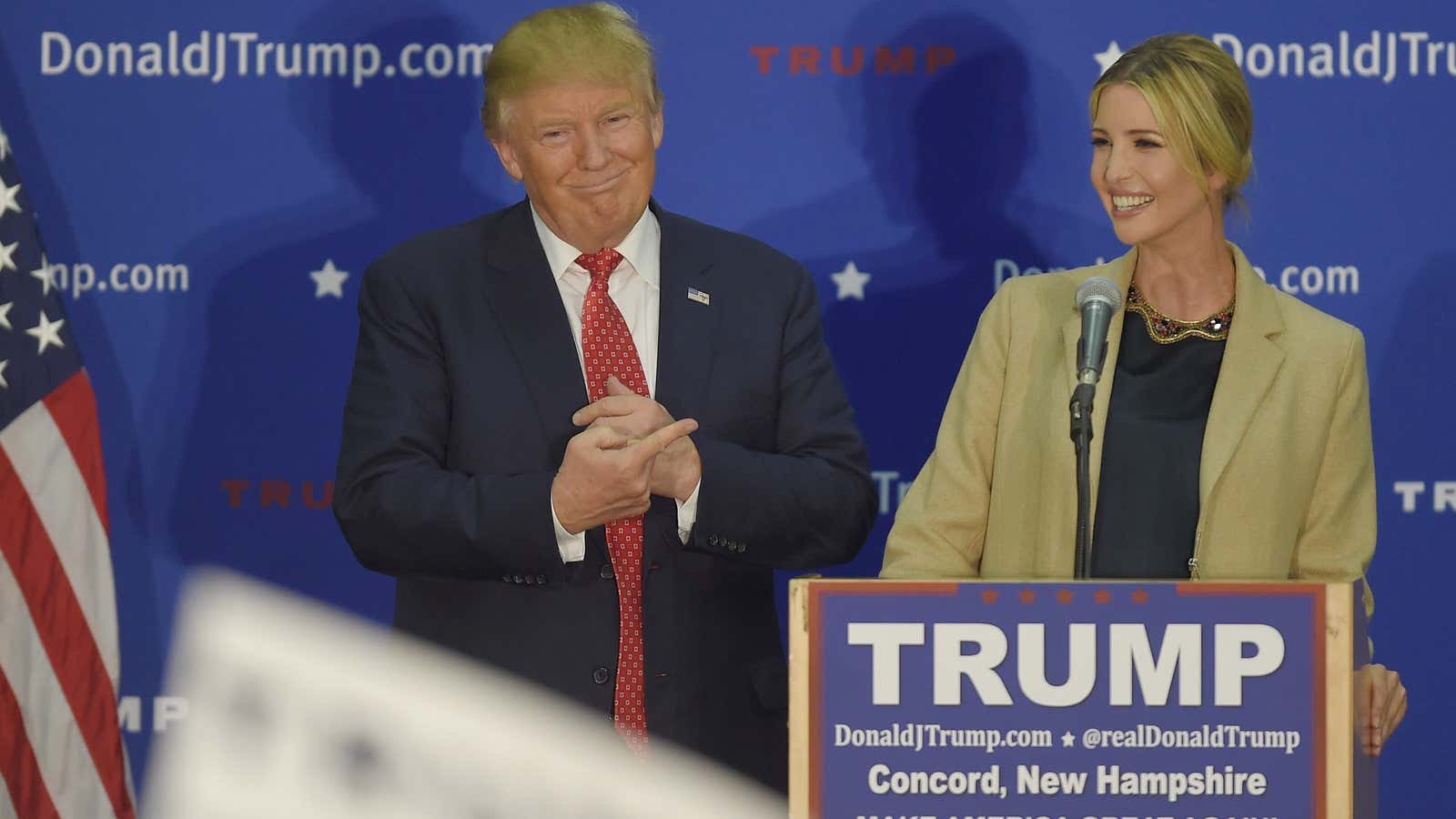The stars may finally be aligned for the US to offer paid parental leave, a benefit taken for granted in most of the rest of the world.
And it’s Donald Trump who may make it possible. More specifically, his daughter Ivanka.
Ivanka Trump has been pushing issues important to families, including childcare and maternity leave, and today (Feb. 13) the US president is scheduled to discuss women in the workforce with Canadian prime minister Justin Trudeau. At the urging of Ivanka, Trump included a maternity leave plan as part of his campaign platform, making him the first Republican nominee to do so. He also included a discussion on working women in the inaugural meeting of his business advisory council Feb. 3.
The US is an infamous laggard when it comes to paid leave. At least 180 countries offer some form of mandatory paid time off for mothers after giving birth, and many offer leave for both parents. While the 1993 Family and Medical Leave Act requires employers to give full-time workers time off because of childbirth or family illness, it doesn’t mandate they be paid, and only 12% of US employees (PDF) have access to paid leave.
While conservatives and business groups have resisted paid leave as another government intrusion, momentum is shifting. Two bills have been introduced in Congress. The Family Act (PDF), sponsored by Democrats, would create a trust fund, similar to social security, paid by taxes on workers and employers, to fund up to 12 weeks of leave for new parents, as well as for other family emergencies. The Republicans also have a plan, albeit a more modest one, that would grant tax credits for businesses that offer at least two weeks of paid leave.
Trump’s campaign plan would give six weeks of leave only to mothers, to be paid through federal unemployment insurance. It’s not yet known if he’ll call for a similar bill from Congress, support either of the existing proposals, or choose to expend political capital on the issue at all.
While the federal government has stalled, activists have taken their fight to the state level. Three states—California, New Jersey and Rhode Island—now offer paid leave funded through payroll taxes, and New York will join them next year. Bill are pending in other states, too.
If enough states begin to offer paid leave, the business lobby will likely drop its objections to a federal law. Because if there’s one thing business hates more than a federal regulation, it’s complying with 50 different state laws.
